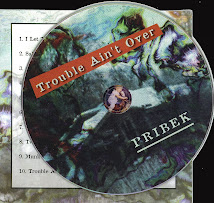[Picture LINK]
What Google Zeitgeist 2012 Tells Us About Us | News and Opinion | PCMag.com: "Evidently, we really want to know about Whitney Houston, Gangnam Style, and Hurricane Sandy. The 2012 Top Google Searches were: Whitney Houston, Gangnam Style, Hurricane Sandy, iPad 3, Diablo 3, Kate Middleton, Olympics 2012, Amanda Todd, Michael Clarke Duncan, and BBB12."
Is that all there is? Nope.
'via Blog this'
We search the web for answers to our questions; what are our questions? Can they be translated to show our quests? ... Quests beyond just consumerism?
The 2012 Google mind map is too large but not unmanageable. It shows us the way to 1.2 trillion searches; 146 languages. That is roughly the capacity of one human brain; sure you cold learn 146 languages if you had to.
From Scientific American:
" ...The human brain consists of about one billion neurons. Each neuron forms about 1,000 connections to other neurons, amounting to more than a trillion connections. If each neuron could only help store a single memory, running out of space would be a problem. You might have only a few gigabytes of storage space, similar to the space in an iPod or a USB flash drive. Yet neurons combine so that each one helps with many memories at a time, exponentially increasing the brain’s memory storage capacity to something closer to around 2.5 petabytes (or a million gigabytes). For comparison, if your brain worked like a digital video recorder in a television, 2.5 petabytes would be enough to hold three million hours of TV shows. You would have to leave the TV running continuously for more than 300 years to use up all that storage. (Paul Reber, professor of psychology at Northwestern University. April 19, 2010. HERE) ... "A reader comments:
"... I'm sure this is just a mistake in editing; after all, even Neuroscience for Kids gets the number of neurons right: 100 billion neurons and a quadrillion synapses. Since your estimates here are magnitudes of order wrong, though, and if they were used for further calculations, doesn't that make the rest of your calculations in error as well? (ibid.) ..."It's not yet an exact science, neither brain industry nor Google zeitgeist. the author above, Reber, goes on to explain:
" ..."The human brain consists..." I should have gone with the commonly held estimate of ~100 billion. However, in terms of the numbers of neurons in the brain likely to participate in long-term memory of facts, events and episodes, 1 billion neurons is not a bad estimate. That might be surprising, but if you look into the details, e.g. a report trying to estimate the number of neurons, [Report LINK] (ibid.)... "The point being a year of Google activity is equivalent to one regular, everyday human brain. There are those who think once the "machine" surpasses the brain's capacity to think and adapt, it will become our ... lord - boss - teacher - owner - maestro ... or what ever supplants the human brain in capacity is called.
MooPig Brain Industries Department thinks that the day you see an aisle in the Walgreen's with the sign "Brain Products" posted, that will be the sign that machines have advanced to the realm of competitor.
Or, when your pet can play BorderLands as well as your teenager, that could be the sign that machines have "evolved."
So, regrettably your mind could be supplanted by terabytes of computer power, before you have a mind. But that is the way of the future; Or is it?
It is hard to believe that the Apollo 11 spacecraft had a computer with only 2k of memory and 32k of storage. Earlier missions had relied upon as little as 24k of core read-only storage, and 1k of main memory.
Moore’s Law ... which originated around 1970 ... simplified version states that processor speeds, or overall processing power for computers will double every two years. The limitation which exists is that once transistors can be created as small as atomic particles, then there will be no more room for growth in the CPU market where speeds are concerned.
On the other hand, ... perhaps molecular computers, quantum computers can takeover when silicon power is exhausted. But then the question is, what’s the timeframe?
" ... In fact, Intel Corporation is now going to three-dimensional chips, chips that compute not just flatly in two dimensions but in the third dimension. But there are problems with that. The two basic problems are heat and leakage. (MICHIO KAKU. MARCH 7, 2012, 12:00 AM. HERE) ... "CONCLUSION
Hey, our brains are three dimensional. But, did you, reader, catch that -- "heat and leakage" -- we might want to tweak our brains in this age of techno-barbarism; all that leakage will catch up with us.
Using natural human curiosity and Google search, will we download our brains?
" ... Our brain is a learning machine. It encounters tasks and then learns how to overcome these tasks, one by one. So that's going to be the basic problem. Simply digitalizing information, that's easy, we can simply scan information into a computer. But, you see, our brains learn. We learn to adapt new ideas, we begin to learn new tasks and new things. And that's going to be a lot more difficult to replicate by computer. So, I personally don't think we're going to see that in our lifetime. (MICHIO KAKU. JANUARY 19, 2011, 12:00 AM. HERE) ... "Let the wild rumpus continue. And, be good to your brain, it's got a lot on its mind!
Keywords:
brain scaling, number of neurons, human, encephalization
_____________________________Reference
http://www.pcmag.com/article2/0,2817,2413146,00.asp?kc=PCRSS03079TX1K0000585
http://www.scientificamerican.com/article.cfm?id=what-is-the-memory-capacity
http://downloadsquad.switched.com/2009/07/20/how-powerful-was-the-apollo-11-computer/
http://www.mooreslaw.org/
http://bigthink.com/ideas/42825
http://bigthink.com/ideas/26541
http://www.frontiersin.org/human_neuroscience/10.3389/neuro.09/031.2009/abstract






No comments:
Post a Comment